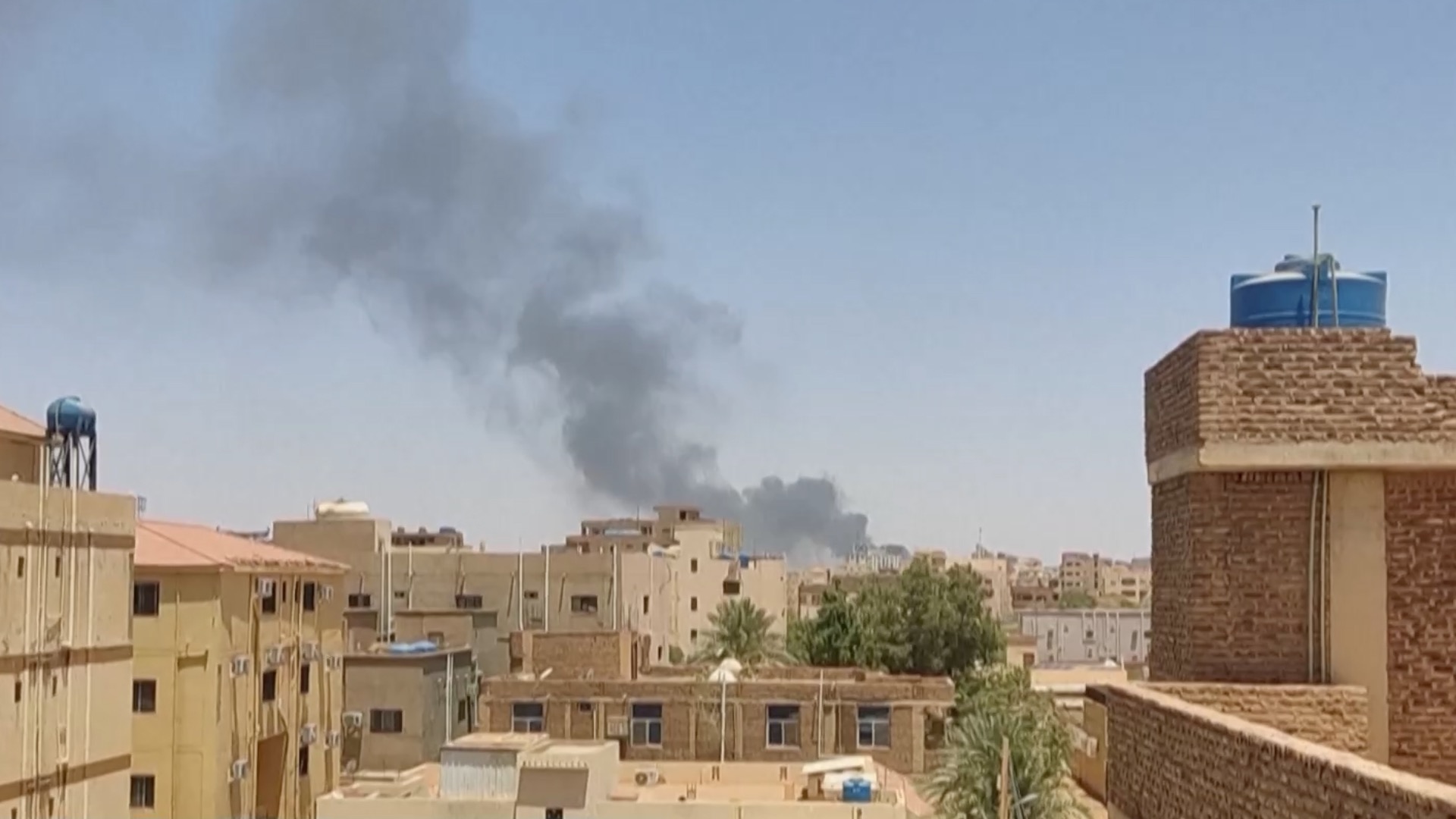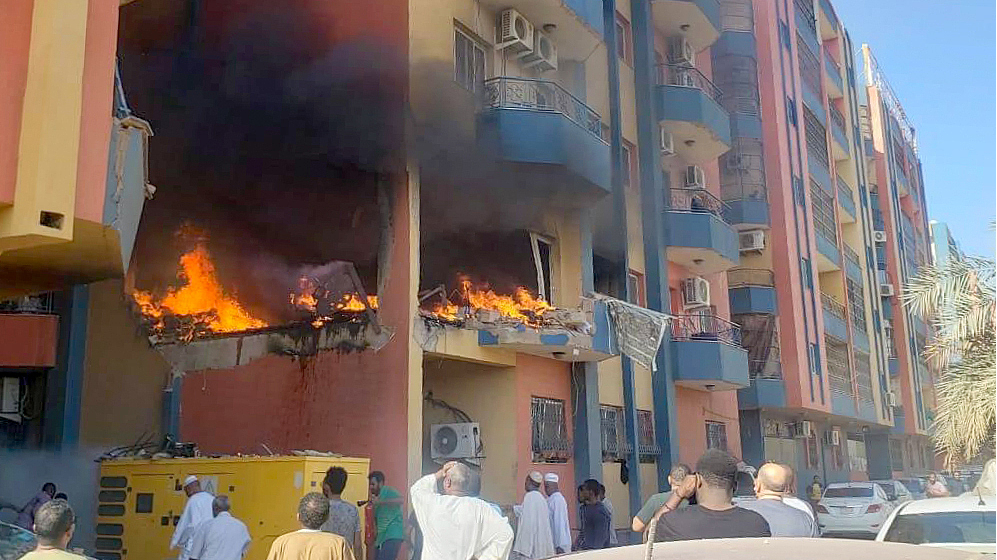01:34

The Sudan conflict enters its seventh day while international communities are worried about the worsening humanitarian crisis and new wave of refugee crisis as no ceasefire in sight.
Beginning Saturday, the conflict killed more than 330 people and injured 3,200 others in the African country.
Humanitarian crisis worsening
UN agencies on Thursday expressed concern over the impact of fighting on civilians in Sudan, where the humanitarian situation was already dire.
The UN Children's Fund (UNICEF) said at least nine children were reportedly killed in the fighting and more than 50 children were injured.
The fighting has disrupted critical, life-saving care for an estimated 50,000 severely acutely malnourished children, who need ongoing, round-the-clock care, which is being put at risk by the escalating violence, said UNICEF Executive Director Catherine Russel.
The UN Office for the Coordination of Humanitarian Affairs (OCHA) said people have been unable to safely leave their homes to buy food and other essentials for days now. Humanitarian pauses must be ensured to enable the safe passage of civilians so that they can seek medical care and access basic provisions.
The humanitarian response in Sudan is severely hampered, said OCHA, adding that many states have interrupted humanitarian activities in response to attacks against aid workers and looting of humanitarian facilities.
The World Food Program warns that the fighting in Sudan could plunge millions more into hunger, and the UN Population Fund warned the fighting is putting tens of thousands of pregnant women in danger, making it too perilous to venture outside their homes to seek urgent medical care.
The UN Refugee Agency (UNHCR) is also greatly alarmed by the escalating violence as an estimated 10,000 to 20,000 people, mostly women and children, have fled the conflict in Sudan's Darfur region to seek refuge in neighboring Chad in the past few days.

Locals watch as a fire broke out after a house was hit during clashes between the Sudanese armed forces and the paramilitary Rapid Support Forces in Khartoum, Sudan, April 20, 2023. /CFP
Locals watch as a fire broke out after a house was hit during clashes between the Sudanese armed forces and the paramilitary Rapid Support Forces in Khartoum, Sudan, April 20, 2023. /CFP
No ceasefire in sight yet
Although international communities including UN has called on two sides in the conflict to stop the fighting for a ceasefire and seek political dialogue to solve the crisis, there is no ceasefire in sight yet as the conflict is entering its seventh day.
On Friday, the paramilitary Rapid Support Forces (RSF) said it had agreed to a 72-hour truce on humanitarian grounds, effective from 6 a.m. Friday, but there is no immediate comment from the Sudanese army.
Wang Youming, director of the Institute of Developing Countries at the China Institute of International Studies, told CGTN that the RSF and Sudanese army might accept a temporary ceasefire under international pressure, but the two sides don't have a strong willingness to attend peace talks, especially when neither of them has an overwhelming advantage. "The conflict will continue for a period."
Acknowledging the power struggle between the warring sides is the main reason for the conflict, Wang said the two sides are also trying to get endorsement from regional countries and major global powers, but it's still unclear which countries will step in the conflict.
Wang also expressed concerns about the humanitarian crisis caused by the conflict.
"It's urgent to restore electricity and water for Sudanese," Wang said, adding that it's also imperative to notice the impact of a new wave of refugees to regional political security.
Read more:
Sudan's Army-RSF clashes explained